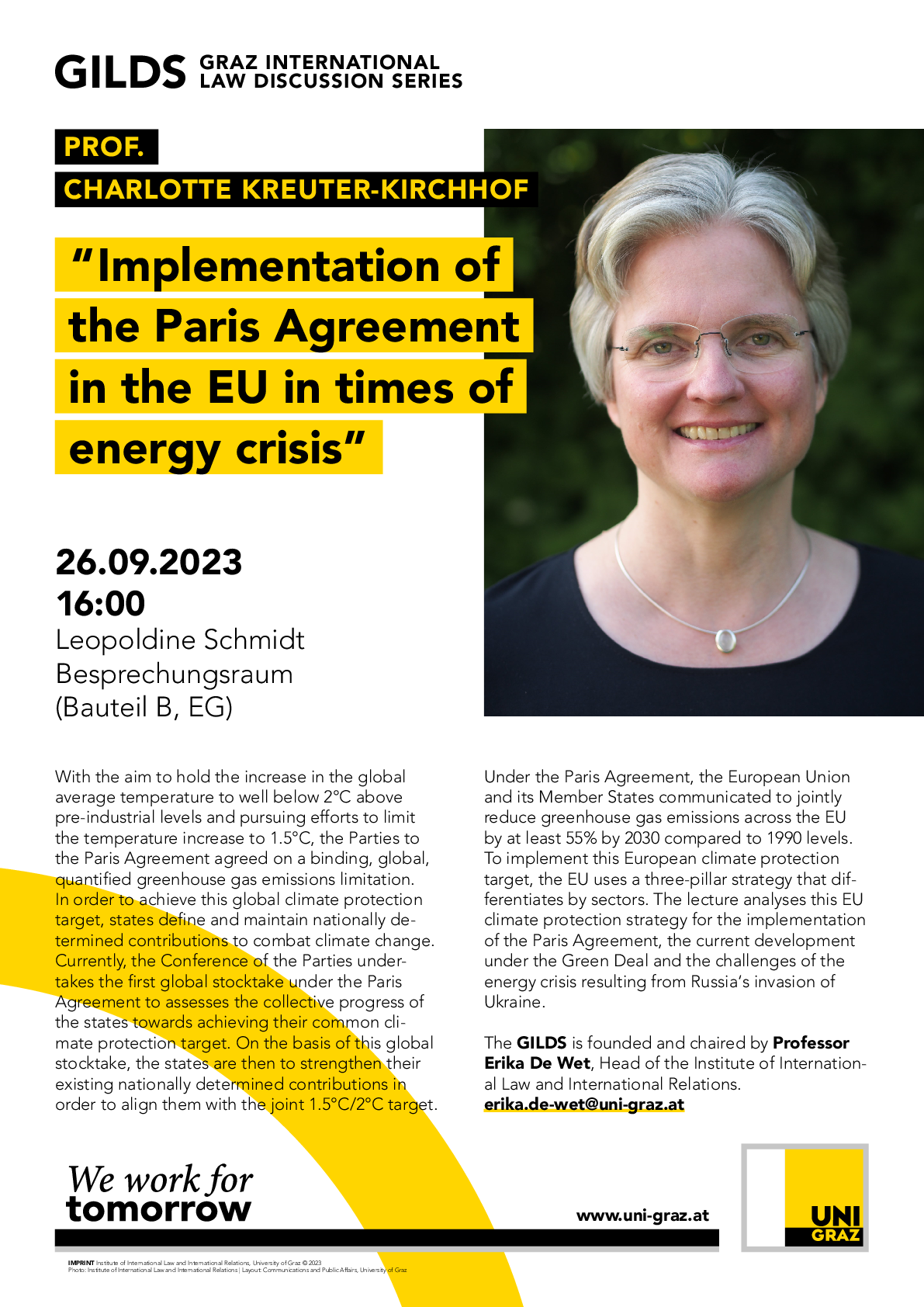“Implementation of the Paris Agreement in the EU in times of energy crisis”
With the aim to hold the increase in the global average temperature to well below 2°C above pre-industrial levels and pursuing efforts to limit the temperature increase to 1.5°C, the Parties to the Paris Agreement agreed on a binding, global, quantified greenhouse gas emissions limitation. In order to achieve this global climate protection target, states define and maintain nationally determined contributions to combat climate change. Currently, the Conference of the Parties undertakes the first global stocktake under the Paris Agreement to assesses the collective progress of the states towards achieving their common climate protection target. On the basis of this global stocktake, the states are then to strengthen their existing nationally determined contributions in order to align them with the joint 1.5°C/2°C target.
Under the Paris Agreement, the European Union and its Member States communicated to jointly reduce greenhouse gas emissions across the EU by at least 55% by 2030 compared to 1990 levels. To implement this European climate protection target, the EU uses a three-pillar strategy that differentiates by sectors. The lecture analyses this EU climate protection strategy for the implementation of the Paris Agreement, the current development under the Green Deal and the challenges of the energy crisis resulting from Russia's invasion of Ukraine.
Event details:
Datw: 26.09.2023
Time: 4:00-5:30 p.m
Location: Leopoldine Schmidt Besprechungsraum (Bauteil B, EG) and online via https://uni-graz.zoom.us/j/69795895543?pwd=citncHdENlUzeGFpVUpPaSt4ZVFkZz09
For attendance in person, please register by e-mail to voelkerrecht(at)uni-graz.at by 24.09.2023; no separate registration is required to follow the livestream.
An overview of the GILDS series and the according programme can be found here.
